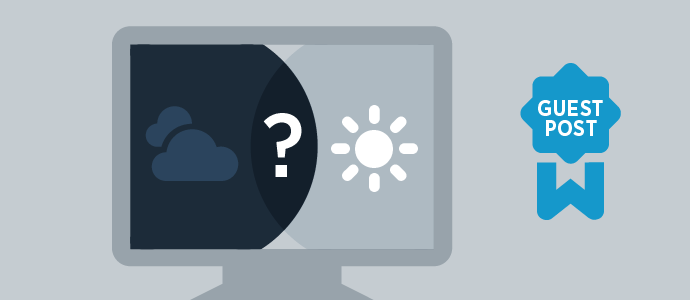True or false: Every company needs a sales forecast. Not quite true. Every company needs an accurate sales forecast. The problem is that it's incredibly tough to accomplish. Most of us settle for things the way they are because it's always been that way and because there's very little optimism that it will ever change.
Accuracy is only one side of the forecast coin. The other side is forecast delivery. No one enjoys the process of gathering individual forecasts and rolling them up into one single set of projections or the fact that it eats up so much valuable time.
Hanging one's proverbial hat repeatedly on inaccurate forecasts can end careers. Stock valuations, budget allocations, and levels of investment are all correlated back to forecasts. The extent to which leaders successfully manage expectations compared to actuals has a rippling effect throughout an organization.
Forecasts are, by definition, projections. We cannot know the future. Therefore, forecast accuracy is a paradox. Here are a few things to consider if you want to turn forecast accuracy into a truism.
CRM
Inaccurate sales forecasting is not an easy problem to solve. One thing is for sure: creating more spreadsheets from CRM and then pivoting the data to death is not the solution. Nor is the solution to create weekly, manual Excel roll-ups from frontline sales managers who are also manually checking these lists.
The solution lies in understanding which sales rep behaviors impact the integrity of your data.
At its most basic, CRM can only provide you with data—it can't make the decisions for you. It only gives you what you ask from it, which are merely inputs to your decision making process. Furthermore, the data collected within a CRM system is often an outdated collection of opinions and hunches. While it looks like solid data with probability estimates attached, the data doesn't capture or measure what your sales reps are actually doing during the entire sales process.
Intuition
The CRM system gives you a comprehensive view of the pipeline as well as detailed drill-downs on the state of play for any specific deal. As I've discussed, however, the inherent nature of CRM pipeline data makes it unreliable, so you end up second-guessing the data and making judgment calls based on gut and ad-hoc account rep updates.
Politics
Forecast accuracy is of concern not just to sales managers and Chief Sales Officers, but also to CEOs and CFOs. As a sales leader, if you give a forecast to your CFO that's off by a large margin—well, that's a problem. A very big problem. It causes a lack of trust and credibility between you and the CFO, which permeates throughout all of the key stakeholders. It's why the average tenure of a sales manager is 19 months.
What pieces are missing in the forecasting puzzle?
It's not a better CRM. It's not a BI reporting tool. Nor is it necessarily a better roll-up process. The missing pieces have to do with (missing) data sources, at-a-glance visibility into customer engagement and data science power.
Accurate forecasting is made easier by today's new breed of solutions. Clari, for instance, eliminates manual data entry, which does three things: saves your reps time, increases data quality, and makes that data available to be collected from many sources.
Clari automatically captures and analyzes CRM, email, calendar, and other critical data sources. With this information, Clari gives you new visibility into rep activity, insight into deal progress, and total clarity on which deals are on track and which are at-risk.
Because Clari aggregates all of this data, they can then use advanced data science to expose at-risk deals, assess customer excitement and interest, and help you know which deals will close. The result: confident forecasting.
Bottom Line
If you want the phrase "forecast accuracy" to be more than a paradox for your organization, you have to stop doing it the way you've always done it. CRM and intuition are important elements, but they don't produce consistently accurate forecasts on their own, and you know that to be true.


